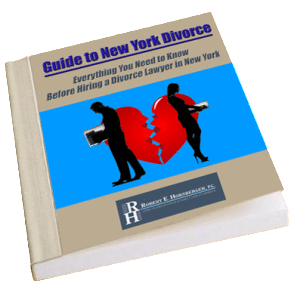As a Long Island Divorce Lawyer I am often asked by my clients if they can begin dating before their divorce is finalized. This can be a sticky issue during the divorce proceedings. In when a legal separation agreement is in place, this document often addresses this issue.
Do You Have a Legal Separation Agreement?
The separation agreement is a legal document that changes the legal relationship between spouses. It is generally understood that spouses that are legally separated and living separate and apart from one another will begin to move on with their lives, which often includes new dating relationships. If you and your spouse have a separation agreement in place, there is likely an understanding that dating will eventually occur at some point. The separation agreement can set forth certain guidelines about when dating can begin and when and whether new partners can be introduced to the children.
Does Your Legal Separation Agreement Address Dating?
Your separation agreement can and will likely contain a provision that discusses or refers to dating. Since the separation agreement allows you and your spouse to live separate and apart from one another, there is an understanding that the separation is the beginning of the “moving on” period. While the separation cannot permit adultery (since it illegal), it can provide that each spouse will be treated as if single and prevents the other spouse from harassing or bothering them about personal details. Unless your behavior with your new partner is particularly egregious – for example, if you use it to threaten, harass, or abuse your soon-to-be ex-spouse or children – the relationship will generally not carry any direct legal or financial consequences in your divorce.
Dating Versus Adultery
“Dating” can be considered different than “adultery.” While adultery can constitute a “fault” ground of divorce in New York, and is even considered a crime under the penal code, “dating” during divorce has somehow become an acceptable part of the divorce process. Because of our changing society, where there is more divorce and more “moving on,” dating during the divorce process is increasingly common. It actually rarely is used as a ground for divorce, especially since no fault divorce became available in New York, and is almost never prosecuted as a misdemeanor.
While Not Legally Prohibited, Dating Is Often Not Helpful During Divorce
However, just because you may be permitted to date other people after your separation, remember that there is a fine line between dating and adultery. Generally, dating will not cause an issue unless you choose to live with a new partner before your divorce is finalized. Even though this is a common occurrence and does not always result in roadblocks to desired divorce terms, it is best to err on the side of caution for the sake of your family, your time, and your wallet. What is often true is that dating another person during this period of heightened emotional stress and sensitivity will trigger other problems during your divorce. Specifically, dating during divorce without an understanding between you and your spouse can cause increased tension and opposition by your spouse. Typically, this will not help your cause during negotiations, when it is most beneficial to be able to work together with your spouse and see compromise on the important issues.
Consider the Children’s Best Interests; Nassau County & Suffolk County Courts Will
Custody of the children is unlikely to be directly affected by dating during divorce. Of course, it is important that parents use discretion with their children as part of responsible parenting. As always, it is very important to keep in mind the best interests of the children, and hold that as the foremost concern in your divorce. Your choices with respect to your children weigh heavily in the eyes of the court, and so it is important that you are respectful or your children’s needs if you wish to maintain the court’s favor.
Watch What You Spend on Your Date
Keep in mind that one way in which divorce can be impacted by dating is if you choose to spend a large sum of money on your new partner. If you purchase an apartment or home for your new partner, the money that you spent may still be subject to equitable distribution in your divorce. So, for example, if you purchase a $50,000 car for your new partner, your soon-to-be ex-spouse will still be entitled to $25,000, which you will need to furnish to her. Generally speaking, you will not be otherwise “punished” for your new relationship.
Contact an Experienced Long Island Divorce Lawyer for a Free Consultation
It is important that you speak to an experienced Long Island Divorce Lawyer to assist you with you with your separation or divorce. The Law Office of Robert E. Hornberger, Esq., PC provides free consultations and is experienced in all aspects of matrimonial law, including separation agreements and divorce litigation. If you have questions about your separation agreement or divorce, contact our office today at 631-923-1910 to schedule your free consultation.
Download our Free New York Divorce Guide
Our 41-page “Guide to New York Divorce: What You Need to Know Before Hiring a Divorce Lawyer in New York” written by an experienced family law lawyer Long Island’s Robert E. Hornberger, Esq., provides you with real information on the divorce process and the laws it rests upon in the state of New York. This book will help give you a solid foundation upon which you can begin the process of making your family’s, life better. Download your Free Guide to New York Divorce here.














